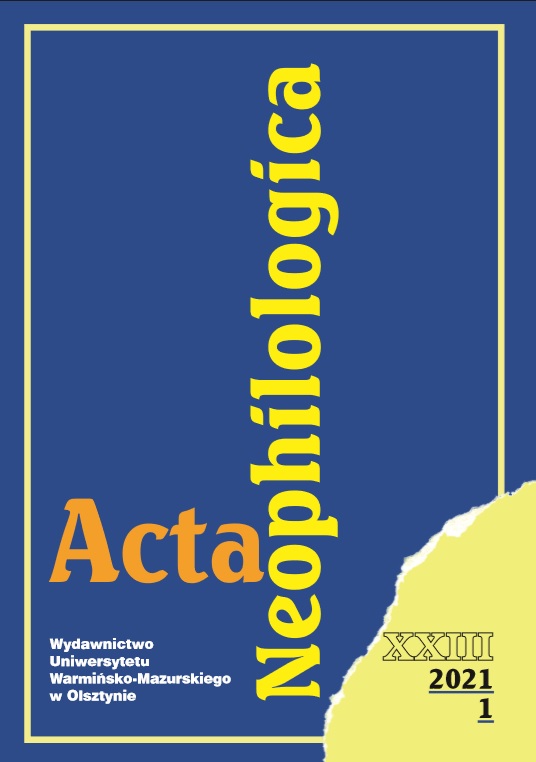Wewnątrztekstowe gry językowe w powieści "Rzeczy uprzyjemniające". Utopia Tamary Bołdak-Janowskiej
In-text Language Games in the Novel Pleasant things. Utopiaby Tamara Bołdak-Janowska
Author(s): Agnieszka GoralSubject(s): Language studies, Language and Literature Studies, Studies of Literature, Polish Literature, Philology
Published by: Wydawnictwo Uniwersytetu Warmińsko-Mazurskiego w Olsztynie
Keywords: T. Bołdak-Janowska; postmodernist novel; narrative games; lexical and semantic games; language games
Summary/Abstract: This article is devoted to language games in the Polish contemporary novel Pleasant things. Utopia by T. Bołdak-Janowska. The subject of the analysis are in-text games: narrative (themes and threads), graphic, sound, lexical and semantic (repetitions of themes and lexemes, antonyms, semantic neologisms) and word-formation (word-formation neologisms), as well as autocreation games of the narrator (knowledge / ignorance). The study indicates that in the analyzed novel language games play a significant role: they determine the multifaceted and attractive character of a work based on a world presented by the narrator's uninhibited imagination. Narrative games, exemplified by the theme of counting, indicate the complexity of human fate – the runner of history – and his entanglement in a number of interpersonal relationships, as well as the historical process itself, which is subject to constant changes, both locally and globally, independent of the will of the individual. Graphic games are based on modern language fashion, functioning especially in the environment of the youth. Sound games are based on the technique of threading referring to Bolero by Maurice Ravel. Lexical-semantic games, being a tool for describing added meanings, connotated according to a known (or – more often – created by the narrator) language, take the reader into a utopian world and at the same time – relatively perfect, i.e., dependent on the point of view of the speaker I-women.
Journal: Acta Neophilologica
- Issue Year: 1/2021
- Issue No: XXIII
- Page Range: 61-76
- Page Count: 16
- Language: Polish

